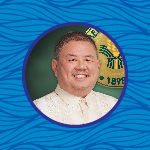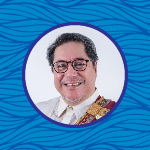Menu
Philippine Standard Time:
NOAB CORNER
About National Organic Agriculture Board (NOAB)

Republic Act 10068, also known as the Organic Agriculture Act of 2010, as amended by RA 11511, established the National Organic Agriculture Board to carry out the policy and the program provided in this Act, there is hereby created a NOAB which shall be the policy-making body and shall provide direction and general guidelines for the implementation of the National Organic Agricultural Program. The NOAB shall be attached to the Department of Agriculture (DA).
The NOAB shall ensure the full participation of POs, NGOs, and the general public through coordination and consultative mechanisms such as, but not limited to, public hearings, meetings and joint projects.
Composition of the NOAB
The NOAB shall consist of the following members:
- The Secretary of Agriculture, or his duly authorized permanent representative, with a rank of Undersecretary, as Chairperson;
- The Secretary of the Interior and Local Government, or his duly authorized permanent representative, as Vice Chair;
- The Secretary of Science and Technology or his duly authorized permanent representative;
- The Director General of the Technical Education and Skills Development Authority, or his/her duly authorized permanent representative;
- The Secretary of Agrarian Reform, or his/her duly authorized permanent representative;
- The Secretary of Trade and Industry, or his/her duly authorized permanent representative;
- The Secretary of Health, or his/her duly authorized permanent representative;
- Three (3) representatives from the small farmers;
- One (1) representative from the NGOs involved in organic agriculture for at least three (3) years;
- One (1) representative from agricultural colleges and universities;
- One (1) representative from the private sector in the organic value chain;
- One (1) representative from the national association of PGS Groups, to be chosen from among and by themselves: Provided, That the representative is a small farmer;
- One (1) representative from a national organization of local government units (LGUs) actually engaged in organic agriculture; and
- One (1) qualified representative from the indigenous organic farmers.
According to RA 10068, as amended by RA 11511,
the following are the powers and functions of the NOAB:
- Formulate policies, plans, programs and projects to develop and promote organic agriculture, production, processing and trade;
- Oversee the successful implementation of the National Organic Agricultural Program;
- Identify sources of financing to expand organic agriculture;
- Monitor and evaluate the performance of programs for appropriate incentives;
- Undertake measures for the international recognition of local certification of organic products;
- Call upon any government agency to carry out and implement programs and projects identified by the NOAB;
- Call upon private sectors, POs and NGOs and the academe to provide advice on matters pertaining to organic agriculture and conduct of capability-building initiatives to farmers, producers, extension workers, consumers and other stakeholders in the agriculture sector in coordination with the Agricultural Training Institute;
- Submit annual and other periodic reports to the President, Secretary of the DA and Congress of the Philippines through the Congressional Oversight Committee on Agricultural and Fisheries Modernization (COCAFM);
- Promulgate such rules and regulations and exercise such other powers and functions as may be necessary to carry out effectively the purposes and objectives of this Act; and
- Perform such other functions as may be necessary for its effective operations and the continued enhancement, growth or development of organic agriculture.












